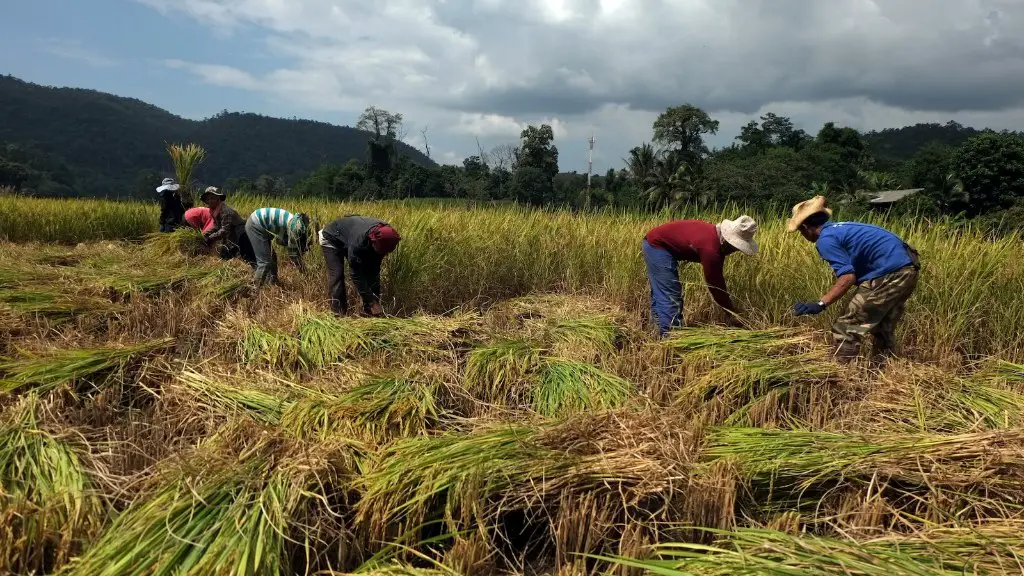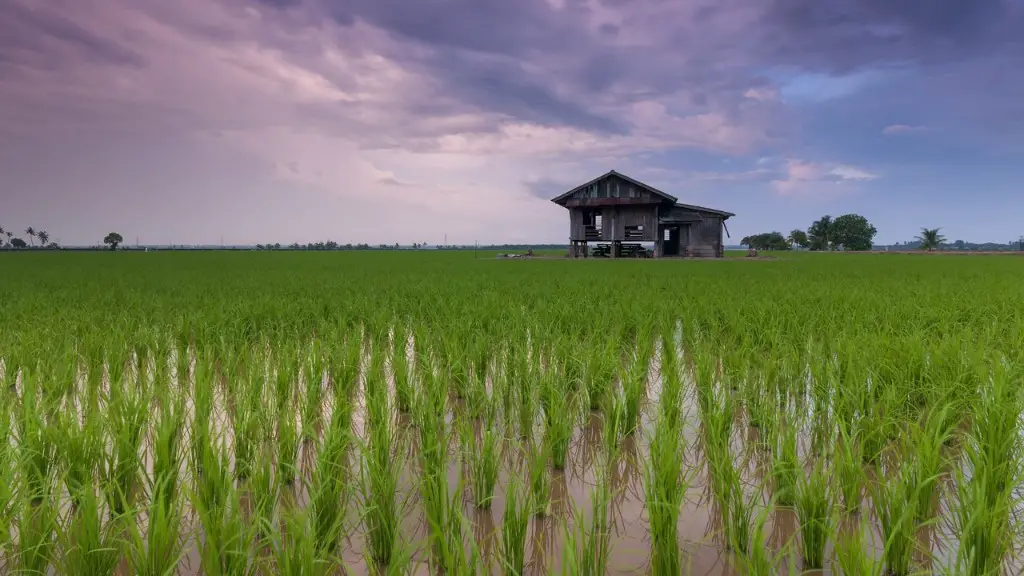In order to become an agriculture economist, one must first earn a bachelor’s degree in agricultural economics. Students interested in this field of study should take courses in economics, statistics, and farm management. After completing a bachelor’s degree program, many students go on to complete a master’s degree or PhD in agricultural economics.
In order to become an agricultural economist, one must first obtain a bachelor’s degree in agricultural economics or a related field. After obtaining a bachelor’s degree, one must then obtain a master’s degree or doctorate in agricultural economics from an accredited institution. Finally, after completing all required education, one must pass a certified professional exam in order to become a licensed agricultural economist.
What does a agricultural economist do?
An agricultural economist is someone who works in production and logistics in the farming industry. Their main task is to organize systems to make procedures efficient and cost-effective. In the agricultural sector, economists are vital, as they help determine how to manage limited resources to get the maximum profit.
An agricultural economist studies and analyzes the production and distribution of food and fiber. They apply economic principles to optimize the use of land, labor, and capital in the agricultural sector. Agricultural economists work in a variety of settings, including government agencies, international organizations, and private companies.
Is agricultural economics a good major
Agricultural economics majors become experts in rural development and the managing of natural resources. They think globally, and know that food is now an international business. This type of degree can lead to hundreds of opportunities.
There are many different types of jobs in agriculture, but some of the highest paying jobs include agricultural engineers, agronomists, agricultural food scientists, veterinarians, winemakers, and farm managers. Agricultural sales representatives may also earn high salaries.
What are 5 careers in Agricultural Economics?
An agribusiness consultant is a professional who provides advice and guidance to businesses operating in the agricultural sector. They help their clients to develop and implement strategies that will improve their operations and increase their profits.
An agricultural loan officer is a professional who works with banks and other financial institutions to provide loans to farmers and other agricultural businesses.
An agricultural appraiser is a professional who assesses the value of farmland and other agricultural property.
An agricultural commodities trader/broker is a professional who buys and sells agricultural commodities such as wheat, corn, and soybeans.
An agriculture development officer is a professional who works with government agencies and non-profit organizations to promote the development of the agricultural sector.
A research agricultural economist is a professional who conducts research on the economic impact of the agricultural sector.
A professor of agricultural economics is a professional who teaches courses on the economics of the agricultural sector.
An environmental economist is a professional who studies the economic impact of environmental issues such as climate change.
The agricultural sector is presently experiencing changes that present new opportunities for agricultural economists. Not only are there more opportunities, but there is also a greater respect and demand for agricultural economists and for the knowledge they have. Agricultural economists are uniquely positioned to help farmers and policy-makers alike navigate these changes, and there is an increasing appreciation for the value they can provide. With the right support, the agricultural sector can continue to thrive in the face of change.
Where can I study Agricultural Economics?
The Agricultural Economics and Management programme at Stellenbosch University is the perfect way to combine your knowledge of agriculture with essential business skills. You will learn about the technical aspects of agriculture, as well as management, marketing, and finance. This programme will give you the ability to make key decisions in the agricultural industry, and help you to build a successful career.
MSc in Agricultural Economics is a 2-year post-graduate program. The program is also popularly known as Agrieconomics. The course curriculum for the program includes modules on Economics, Agriculture and Agribusiness. The program is designed to provide students with the skills and knowledge necessary to pursue a career in agricultural economics.
How many years is Agricultural Economics
The Bachelor of Agriculture (B Agric) degree programme is a 2, 4, or 5-year course of study depending on the mode of entry. The 5-year degree programme includes a qualifying year.
There is a lot of room for advancement in the field of finance. Individuals with an MBA will be well-positioned for management and financial analyst positions. Financial managers and analysts can expect to see median annual wages of $89,330 and $83,660, respectively. Operations research analysts, market research analysts, and actuaries are also in high demand, with median annual wages of $134,180, $83,660, and $134,180, respectively. With the right experience and education, individuals in the field of finance can advance to high-paying positions.
How much do agricultural economist earn?
The average salary for an entry level economist agricultural is R17,657 per year. On the other end, a senior level economist agricultural earns an average salary of R814,264 per year.
Some basic math techniques are crucial for a proper understanding of the current economic theory and methods, which also applies to agricultural economics. In agricultural economics, math is used to understand and optimize production, analyze and forecast market trends, and understand financial instruments and risk management. Agricultural economists also use math to study the environmental impact of farming and agricultural policy.
What is the salary after PhD in agriculture
The average placement package that can be expected by fresh graduates of PhD Agronomy Courses usually ranges between INR 2,00,000 and INR 10,00,000. The field of agronomy is vast and there are many specializations that one can choose from. The average salary will depend on the area of specialization and the employer.
If you’re looking for the best global universities for agricultural sciences, the United States has some great options. The University of California Davis, the University of Florida, Harvard University, and the University of Illinois Urbana-Champaign are all top-ranked schools. Michigan State University, Purdue University West Lafayette Campus, and the University of Wisconsin Madison are also excellent choices. And finally, Iowa State University is a great option for students interested in agricultural sciences.
What is the most recognized career in agriculture?
Food scientists work in a variety of settings, including food production companies, government agencies, and research laboratories. They may analyze food products to determine their nutritional content or safety, develop new food products or processing methods, or conduct research on the psychological aspects of food consumption.
Agribusiness jobs are generally well-paid, with the exception of entry-level positions. Agribusiness managers can earn an average salary of 79,000 USD per year, while agribusiness analysts earn an average of 51,000 USD per year. Ranch managers and production supervisors earn an average of 45,000 and 59,000 USD per year, respectively.
Conclusion
There is no one-size-fits-all answer to this question, as the path to becoming an agricultural economist may vary depending on factors such as your country of residence, educational background, and work experience. However, some tips on how to become an agricultural economist may include studying economics and agricultural policy, pursuing a master’s or PhD in agricultural economics, and working in the field of agriculture.
In order to become an agriculture economist, one must have a deep understanding of both the agricultural industry and the field of economics. This combination of knowledge and skills is necessary in order to make sound economic decisions regarding the agricultural industry. Individuals who want to become agriculture economists should consider pursuing a degree in agricultural economics.






1 thought on “How to become agriculture economist?”